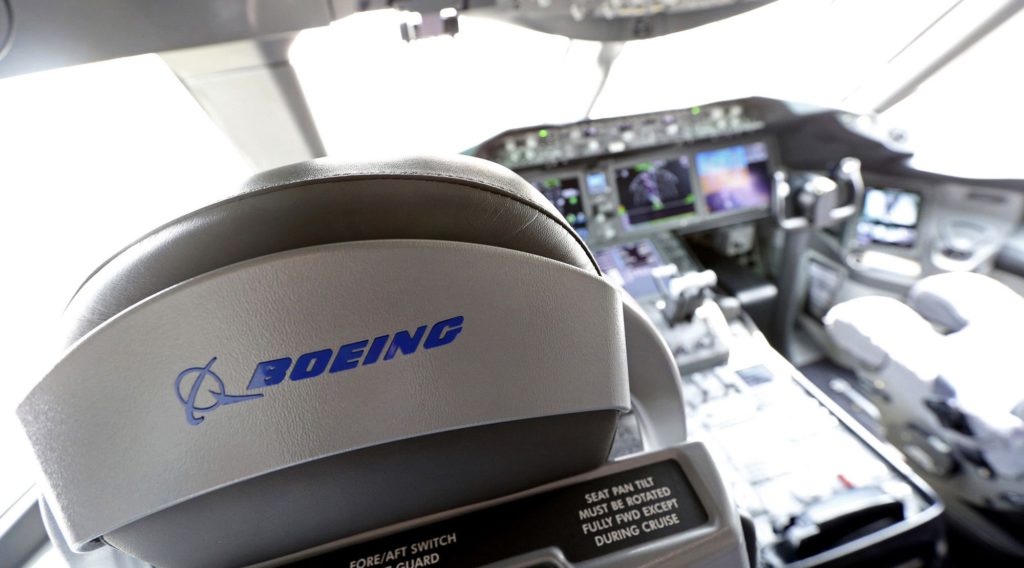Boeing Co. reported a surprise loss to end 2022 — its sixth straight money-losing quarter — as higher costs slowed the planemaker’s recovery even though a late flurry of jet deliveries drove a surge in cash.
(Bloomberg) — Boeing Co. reported a surprise loss to end 2022 — its sixth straight money-losing quarter — as higher costs slowed the planemaker’s recovery even though a late flurry of jet deliveries drove a surge in cash.
Adjusted earnings were negative $1.75 a share in the last three months, the Arlington, Virginia-based company said Wednesday in a statement. Revenue was about $20 billion, roughly in line with the average analyst estimate compiled by Bloomberg.
The results underscore the work Boeing still has to do to return its factories to high gear and fully capitalize on soaring demand for air travel. The US aviation titan has already endured a difficult few years marked by the grounding of the cash-cow 737 Max and Covid-19 pandemic, before recent signs of recovery.
See also: Boeing’s Top Lobbyist Tries to Restore Washington Swagger
The shares fell 1.6% at 9:34 a.m. in New York. Through Tuesday’s close, Boeing’s stock had risen 11% this year.
Still, Boeing made good on a cash-flow recovery promised by executives, generating $3.1 billion in the quarter. That was better than the $2.89 billion Wall Street had expected for the period, and lifted the company to its first positive cash flow on an annual basis since 2018. Boeing had burned through more than $28 billion over the three-year stretch before the 2022 rebound.
“While we have made meaningful progress, challenges remain and we have more work ahead to drive stability in our operations and within the supply chain,” Boeing Chief Executive Officer Dave Calhoun said in a separate memo to employees.
Rising Deliveries
The planemaker is starting to step up jet deliveries and chip away at its stockpile of hundreds of already-built Max, 787 Dreamliners and 777X jetliners. Boeing has been hobbled by shortages of critical components such as engines and new hires who are getting up to speed on its production lines, hampering its plans to speed up Max and Dreamliner output.
Increasing deliveries bolsters cash, although Boeing also faces the added expense of bringing the aircraft out of storage and making repairs so they meet the latest airworthiness standards, according to George Ferguson, an analyst with Bloomberg Intelligence. He estimated that the company had 229 undelivered Max in its storage lots as of December.
“When you start delivering airplanes that have already been built, obviously it turbocharges cash flow because you didn’t have to spend cash to build the airplane,” Ferguson said of Boeing’s cash surge in an interview before the earnings report. “But you have to spend some to get it out of inventory – before you can grab all that cash.”
Calhoun and Boeing Chief Financial Officer Brian West are expected to provide an update on the status of the undelivered jets, efforts to stem defense program losses and discuss another potential earnings catalyst — China’s reopening travel market — during an earnings conference call later Wednesday morning.
Boeing expects China to gradually reopen to exports of its 737 Max jets, Calhoun said on CNBC Wednesday morning. He expects the nation’s airlines to spend the next six months to return their 100 or so Max jets to service, and after that point deliveries of new aircraft would be “on the table.”
Airlines are snapping up new jets as they emerge from Covid, and Boeing’s 737 Max has an opportunity to make headway against a rival Airbus SE model that’s largely sold out until 2029. But the US planemaker has been slow to crank up work in its factories as it contends with shortages of engines, particularly for its 737 Max, and supplier hiccups for everything from computer chips to lavatories.
Boeing’s commercial division posted a $626 million operating loss, despite its revenue almost doubling to $9.2 billion from a year earlier. With the big December delivery push, some analysts had expected the commercial business to show an operating gain.
Cash Gain
Cash and marketable securities grew by nearly $3 billion to $17.2 billion during the final quarter, leaving Boeing with a cushion for the debt payments it faces this year.
The company said it plans to spend $3.2 billion on research and development this year, about $300 million more than in 2022. And it affirmed earlier guidance that it would generate between $3 billion and $5 billion in free cash.
The quarterly report was relatively clean, without any accounting charges or other major setbacks, said RBC analyst Ken Herbert. That’s a good sign for Boeing investors, he said, even if the results weren’t obviously strong.
The fact that there was “not a lot of news was good news,” Herbert said in an interview.
More stories like this are available on bloomberg.com
©2023 Bloomberg L.P.










